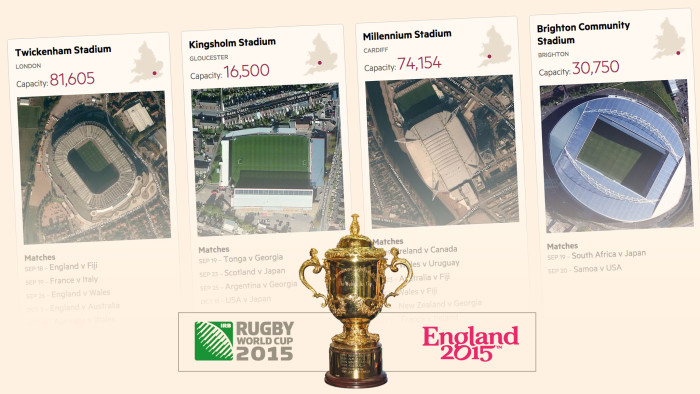Scotland: Glasgow’s rugby triumph brings hope

Roula Khalaf, Editor of the FT, selects her favourite stories in this weekly newsletter.
After collecting the Six Nations wooden spoon this year for the second time in four years, Scotland were in dire need of a pre-World Cup pick-me-up.
That came in May when a Glasgow Warriors side that forms the backbone of the World Cup squad sealed their first title in the Pro12. Moreover, they beat Ireland’s three-time winners Munster in the final.
“You’re only as good as your last game,” says Sean Lamont, a veteran of the 2011 and 2007 World Cups and one of 16 Glasgow players selected for head coach Vern Cotter’s final squad of 31. “It’s something we can capitalise on.”
If Scotland are to take Glasgow’s success into the tournament, they will need to put behind them that dire Six Nations. “The lineout was good, we scored some good tries and there were some great individual performances,” says former international Duncan Hodge, who is on Cotter’s coaching team. “But we just made too many errors.”
It is certainly true that the Scots will have to correct the tendency for unforced errors that they showed in the Six Nations.
Scotland will also have to forget the disappointment of failing to make it out of the group stage of the World Cup in 2011, when they were undone by losses to Argentina and England.
The FT’s guide to the 2015 Rugby World Cup

The big men are back. The world’s best 620 players (minus the infirm and overlooked) have assembled across England and Wales to contest the eighth world championship. View our interactive guide.
Read more
Yet the Scots’ World Cup record is otherwise good. They reached the knockout phase of every tournament prior to 2011, most memorably when Gavin Hastings’ team narrowly missed out on the 1991 final.
Today, there is optimism that New Zealander Cotter, a French league winner with Clermont Auvergne, can make his mark.
“We want to play the game at speed, and we’ve got some really good attacking players,” says Hodge, pointing to the likes of Matt Scott, Mark Bennett (pictured, centre), Stuart Hogg, Tommy Seymour and Alex Dunbar.
“But we need to get them all on the pitch at the same time,” he adds. With a squad that traditionally has less depth to it than its rivals, Scotland cannot afford injuries.
The Scots begin their World Cup on September 23 against Japan, who have made strides in recent years as they prepare to host the World Cup in 2019. Some of their team have had a taste of Super 15, the southern hemisphere’s premier provincial tournament, and will be a considerable test.
The Scots then play two more games in 11 days, against the improving US and group favourites South Africa, before facing Samoa in Newcastle on October 10. That could well be the deciding game.
“We’d like to get out of the pool,” says Hodge. “Once we’ve done that we can start to reassess.” If they did, it would likely mean a quarter-final against England, Wales or Australia.
And after that? “The teams we could play off against, we’ve beaten before,” notes campaign veteran Lamont. “We can do it on our day,” he adds, allowing himself to dream. “Our target is to go all the way, we know we can. I want to make this the best tournament Scotland has ever had.”
Comments